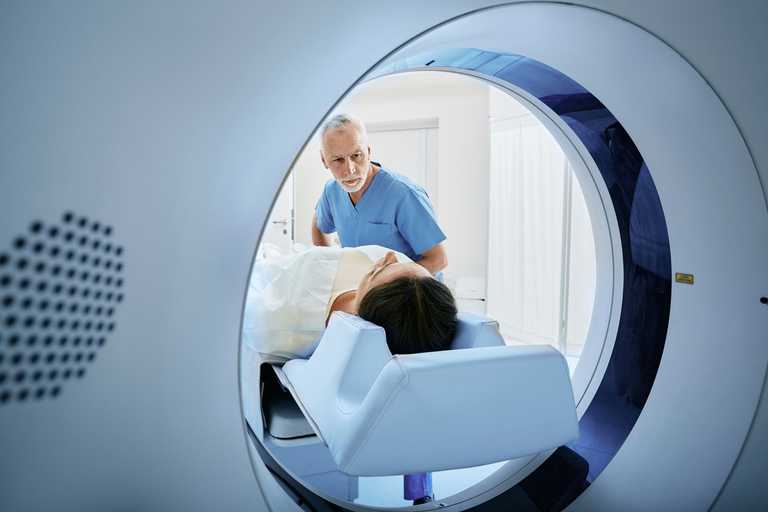
Ultrasound Guided Steroid Injections
Ultrasound-guided steroid injections with Prime Health can help reduce inflammation and provide significant pa...

In a bid to help the NHS cope with COVID-19, more than 2 million operations have been cancelled in England which, it has been estimated, will cost the NHS around £3bn.
With more than 10 million people in the UK suffering from arthritis or other joint issues, this is a worrying time for many as thousands of individuals across the UK waiting for hip and knee replacements are seeing their surgery postponed.
The delay in surgical treatments means sufferers will need to manage their joint pain using musculoskeletal (MSK) services such as physiotherapy, osteopathy, and chiropractors as well as prescribed medication such as pain killers and corticosteroid (steroid) injections.
Pain management treatments are important for the control of ongoing physical pain.
If you suffer from long-term (sometimes called chronic) pain, your GP may carry out a physical examination, and discuss your pain history in order to recommend and/or prescribe a suitable course of treatment to help manage the pain.
During an examination, your GP may explain to you how your individual pain management treatment will work and may go on to:
Prescribe pain medication for short term relief
Refer you to a Pain Management Programme or an MSK service such as physiotherapy to help with pain relief
Recommend a surgical procedure to address the cause of your pain.
To make life easier in the short and long term, your doctor will tailor your treatment specifically to the management of joint pain issues. After a thorough medical examination and diagnosis, people suffering from joint pain can be offered a range of pain management solutions, including non-invasive pain management treatment.
Those most likely to be offered pain management solutions will be people suffering from a range of physical pain issues, such as lower back pain, knee pain, shoulder, or hip pain.
If you are suffering from ongoing joint pain, your GP may offer recommendations and provide tips for managing your pain at home through a combination of stretching, gentle regular exercise to keep your joints mobile, physical therapy and pain relief.
Physical activities that won’t put too much strain on your joints such as swimming and walking are good for helping to manage your pain, as well as stretching exercises such as gentle yoga, Pilates and tai chi classes.
You can also use an exercise bike at home and get outside for a bit of light gardening to help keep your mind and body active.
Just remember not to overdo it – little and often is the best approach.

Management of musculoskeletal pain can be complex, and no single approach will be adequate on its own.
However, for many, injections of a steroid called hydrocortisone is highly effective in reducing inflammation in swollen and painful joints and can provide significant pain relief.
Many joint and muscle conditions and autoimmune disorders, such as osteoarthritis and rheumatoid arthritis, can cause inflammation in the body. As hydrocortisone is a valuable anti-inflammatory medicine, steroid injections can be used to successfully manage the pain caused by such common and painful conditions which are often suffered by those aged over 60 in the UK.
Steroid injections are given by healthcare professionals and can be effective for anyone living with long-term joint pain, including hip, knee, and lower back pain.
Steroid injections are also the preferred option for treating de Quervain tenosynovitis and trochanteric bursitis. They are also a helpful pain management treatment for rotator cuff syndrome and lateral epicondylitis.
Injections of steroid medicines have been an important aide in the management of musculoskeletal disease for more than 50 years, and ongoing research has proven that they deliver good results.
Steroid injections can be administered intra-articular (within the joint space), periarticular (around the joint space), or within specific soft tissue structures.
These injections stay in the joint and so do not have the side effects associated with steroids such as weight gain.
Corticosteroids are quite different from anabolic steroids, and the two should not be confused:
Steroid injections into soft tissues structures near the site of pain can:
Prime Health offers a wide range of musculoskeletal pain management treatments through our UK wide network of centres. These include hydrocortisone steroid injections and ultrasound-guided injections (USGIs) for pain management.
In line with World Health Organisation guidelines, additional safety policies have been introduced and our clinicians must now consider any risks posed by COVID-19. Patients will be asked to complete a questionnaire and the healthcare professional will need to determine that the benefits of the steroid injection, especially to patients over 70 or with co-morbidities, outweigh any risk of infection.
Only a qualified healthcare professional can give a steroid injection, and you will need to be referred by another healthcare professional (such as your GP, consultant or physio).
If you would like to talk to our friendly team at Prime Health about booking an appointment with a healthcare professional who can give you a steroid injection or you have any concerns you wish to discuss with us, do not hesitate to contact us so we can answer your questions.
Our all-inclusive diagnostic scanning package offers everything you need for quick, expert care—all for a fixed price.
Learn morePrime Health Surrey has enhanced its healthcare offering with the installation of a state-of-the-art CT scanner. Appointments available.
Learn moreOur unique fast-track self-pay MRI Prostate Health Check has been designed to provide you with the results you need quickly and accurately - with or without a referral.
Learn moreIn partnership with the General Practice Group, we have extended our Private GP service to our centre in Harley Street, London.
Learn more


